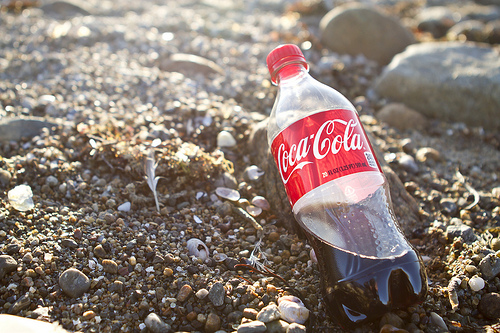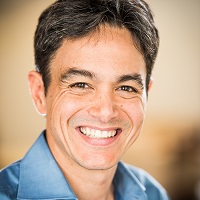
My focus on the environment and sustainability started with my father.
He was the type to save every newspaper, every glass bottle and every aluminum can—all before curbside recycling even existed. He recruited my siblings and me to help schlep everything to the recycling center, sort colored glass from clear and crush every last can.
During California drought years, we filled two-liter Coca-Cola bottles and put them in our toilet tanks to save water with each flush. This effort wasn’t commonplace in the late 1970s, but we did it because my dad believed it was right.
It wasn’t until my tween years that I realized my family’s care for the planet was the exception rather than the rule.
When I hiked at the Rancho San Antonio Open Space Preserve, the air in the hills was crisp and clear some days, but on other days, brown smog hung densely, obscuring the other side of the valley. Around that time, scientists confirmed that mankind had torn a giant hole in our atmosphere through the use of chlorofluorocarbons—a practice that has since been banned.
All this hit during my formative years, and after high school, with my parents’ full support, I headed to Massachusetts Institute of Technology to study chemical and environmental engineering. Lots of folks studied bits and bytes, and while I liked programming, I knew I wanted to pursue ventures that contributed to society and the environment as much as any financial framework. The technologist in me was intrigued by the idea of using biological systems in new and inventive ways.
At the University of California, Berkeley, I met colleagues who also wanted to develop products that used technology for positive societal and environmental impact. Together, we built Amyris, a company that developed production processes for antimalarial drugs, diesel fuel, polymers, soaps, solvents and emollients from sugar that created tiny carbon footprints compared to goods made from petroleum.
Amyris did (and still does) some amazing work. Unfortunately, I quickly realized that it’s easier to sell consumers on sustainability than it is to enforce shifts in business markets. A homeowner might want to use green cleaning supplies, but persuading a chemical company to switch to sustainable solvents is more challenging unless it can see the market’s reaction.
I wanted to effect change more rapidly, so I looked for sustainable products that touch the consumer more directly, and nothing does this better than food. With the help of my business partner, Adam Lowry, I founded Ripple Foods to counter the heavy greenhouse gas production of the dairy industry—all through the production of more sustainable, plant-based milk.
Our goal is to get people thinking about sustainability in their daily choices.
If there’s one thing I’ve learned, it’s that the future of sustainability lies with each individual doing his or her part. Here are a few things we can all do to help:
Vote in elections—and with dollars. We influence policy through the candidates and organizations we support, so we must cast ballots carefully. We don’t have to run out and purchase an electric car, but we should be conscientious about seeking sustainable products. All of those smaller purchases—green cleaning products, toilet paper made from recycled paper and vegetables instead of meat—add up to a powerful effect. The increase in purchases of sustainable products would be a huge help in curbing global climate change.
Focus on what really moves the needle. We need to identify issues that are important to us and advocate for choices that truly have an impact on those issues. For instance, if water is our concern, we shouldn’t focus on restaurants serving water to each diner—those glasses don’t add up to much more than 10 to 20 gallons for the average restaurant. The water it takes to keep the lawn in front of it alive? Up to 192 gallons per day. (As a side note, to learn more about water conservation, the USGS Water Science School is a great resource.
Nurture children’s interests in technology and hard sciences. While coding is an important tool for all kids these days to learn, it pains me to see some of our best and brightest entering careers in coding or investment banking. In fact, U.S. interest in science has been on the decline. We won’t code our way out of the climate crisis, and we certainly won’t solve it with new financial derivatives. The world needs physicists, chemists and biologists, as they will be positioned to make the most impactful innovations.
Finally, practice values like others are watching. Every action we take has the potential to influence those around us. Others will notice if we switch off the lights when we leave a room, pull recyclables from the trash or walk to the store instead of drive. These efforts have an exponential effect when we inspire others to follow suit.
My father’s dedication to the environment inspired my own passion and led me to my life’s work, so I know how powerful one person’s actions can be. Achieving sustainability is a multifaceted project, but it begins with the ripple effect of individuals doing the right things.
Author: Dr. Neil Renninger
Image: FromSandToGlass/Flickr
Editor: Nicole Cameron








Read 1 comment and reply